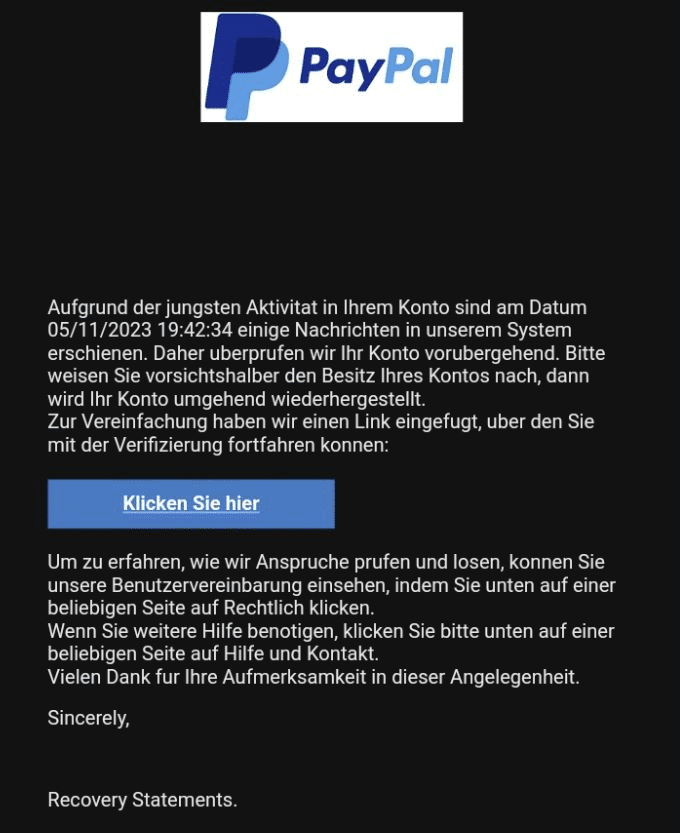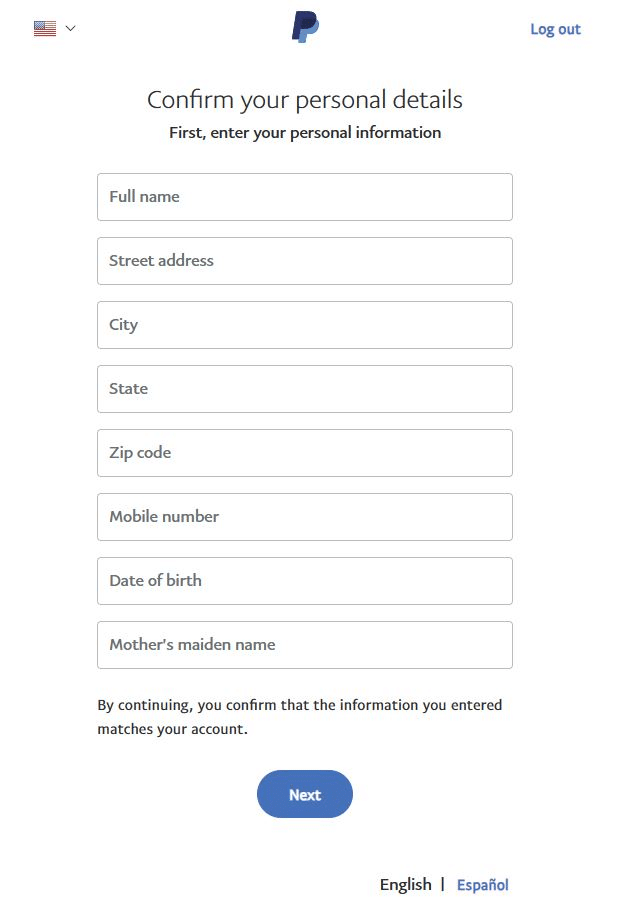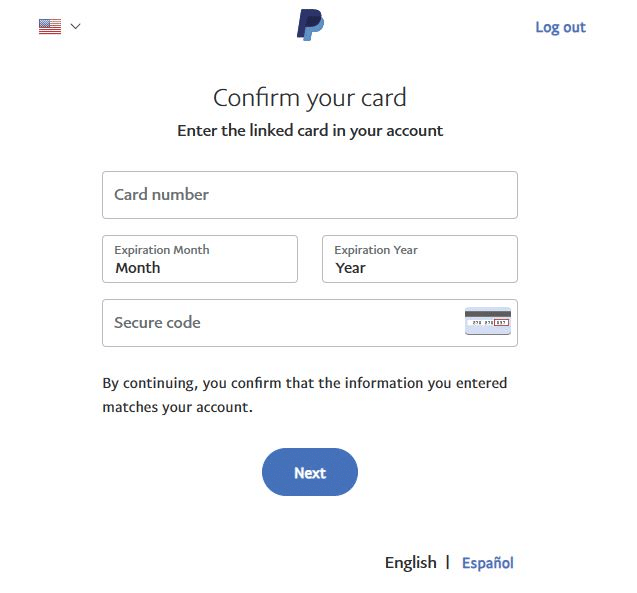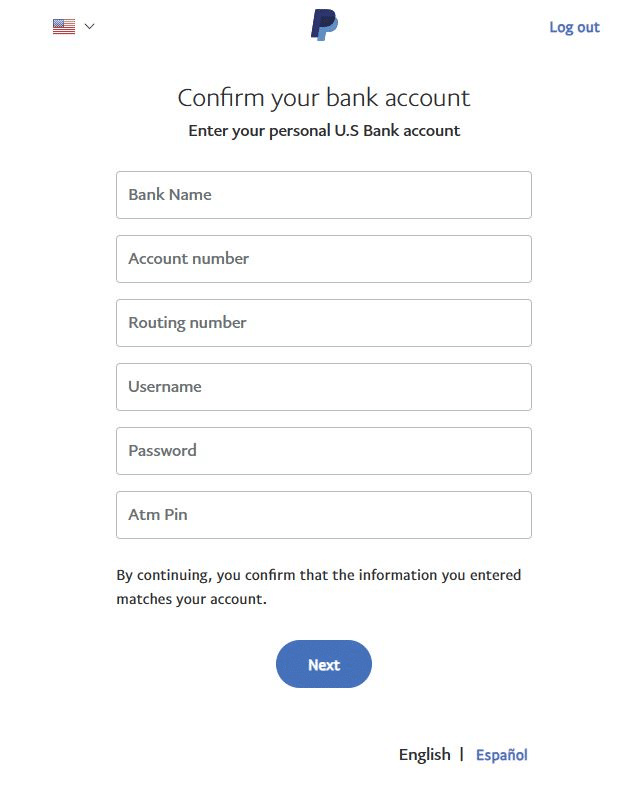Imagine checking your email and finding a message from PayPal. This will tell you that there has been recent activity on your account. Your first reaction is likely to be concern and an immediate desire to solve the problem. This is exactly what fraudsters want to achieve with sophisticated phishing campaigns.
The bait: A deceptively real-looking email from “PayPal”
The email, disguised as a warning from PayPal, claims that your account is under review due to suspicious activity. An attached link promises quick clarification of the matter. Below are 2 screenshots of the email:

But caution is advised here. Upon closer inspection, inconsistencies often become apparent at first glance. Linguistic errors, such as the absence of umlauts, or a sudden change in language when saying goodbye can be the first indication of an attempted fraud.
Fake Website: Dangerous Mirror Image
Anyone who clicks on the link despite all the warning signs will end up on a page that looks deceptively similar to the official PayPal page.

But the URL reveals that it is not the real site. Security programs often warn about such sites, but this warning is not always taken seriously.
We deliberately enter incorrect data for our check and observe that it is accepted without checking - a clear sign that it is a phishing attempt, as the data is not compared for verification. At this point they are collected directly by the fraudsters. – You have now reached your first goal: access to your PayPal account.
Data collection: A deceptive form
In the next step, you will be asked to enter a variety of personal information - including information such as "mother's maiden name", which is often required to recover passwords for other services.

It becomes clear here that the fraudsters are not just interested in access to your PayPal account. You want an extensive collection of sensitive data. On the next page you will also be asked for credit card details:

Here we are dealing with particularly data-hungry fraudsters, because in addition to the credit card information, they also want our bank details:

The entire form is in English. Details that are unusual in our latitudes are also preserved here. However, you cannot change the language setting at the top left. All of this shows that this is not a reputable site and certainly not the official PayPal site.
The clues: Recognize warning signals
Even a cursory glance at the email can be enough to expose the attempted fraud. The sender of the email, the language used and the structure of the message are important indicators. Important information such as an inauthentic sender address, language errors and inconsistent communication should raise suspicion and lead to no further action being taken via the email.
How you can protect yourself
If you have any doubts about the authenticity of an email, you should definitely not use links in such messages to access your account. Instead, go to the provider's website directly in your browser. Change your passwords regularly and, if possible, use different passwords for different services. Additional protection is provided by two-factor authentication.
Conclusion
Phishing attempts like the fake PayPal emails aim to abuse trust and obtain sensitive data. You can protect yourself and your data by paying attention to language use, email consistency, and website authenticity. To combat online fraud, it is important to raise awareness and remain vigilant.
If you want to expand your knowledge of internet security and stay informed, subscribe to the Mimikama newsletter . You can also use our media education offering to protect yourself and your loved ones from the dangers of the Internet.
Also read:
Fraud at the expense of grief: An unscrupulous case
Online car sales with deception: Beware of the trap
Microsoft fraud scam: Senior avoids trap
Notes:
1) This content reflects the current state of affairs at the time of publication. The reproduction of individual images, screenshots, embeds or video sequences serves to discuss the topic. 2) Individual contributions were created through the use of machine assistance and were carefully checked by the Mimikama editorial team before publication. ( Reason )

